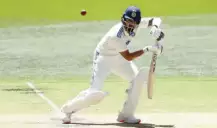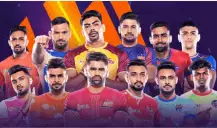
In this article I analyse the decision making process and risk assessment regarding the probability of an event.
As in life, in sports betting we live from memories. They are turned into numbers to calculate the real probability of an event.
When we talk about time, or even life, we argue that we like to live in the moment, the now, the present. But my point of view regarding life, time and space is that the so called present, the now, or whatever term we may use simply does not exist. It's nothing but the vacuum between clarity and nostalgia, something ephemeral...
It's nothing but a few seconds of illusions that soon become part of the past. There's a saying by an unknown author that goes something like:
"There are four things that can never be recovered: the stone after it’s thrown, the word after it’s spoken, the occasion after it’s missed, and the time after it’s gone."
What I've just mentioned is already in the past. What you have read just now is also part of history. This makes me wonder if we live our lives feeding on memories.
As in life in general, in sport betting we live off memories. These are automatically turned into numbers, to help calculate the real probability of an event.
Many bettors focus on winning every current bet. Therefore, they look for events with high probabilities, which usually means very low odds. That is, they look for "sure bets", as if to win money in the long term you had to win every single bet. By now you may be wondering what's wrong with that. After all, should we bet to lose?
What I mean is that it doesn't matter: Bettors should view bets with indifference. It's not important if you win or lose the current bet. Let me clarify this a little further.
We should always be looking for value bets, but that value has to do with the difference between available odds and real odds, not with how likely we are to win that particular bet. To understand what I mean by this, think of the heads or tails, a game with 2 possible outcomes, each with a 50% probability. In a thousand tosses of a coin, there should be about 500 heads and 500 tales, corresponding to the real odd of 50% for each outcome. Therefore, the fair odd is @2. But let's say someone gives you the chance to bet at a higher odd. That would obviously be a good chance to bet with value! This is what professionals do, they look for bets in which the available odd is higher that the fair odd (the real probability of the event). In the long term, by betting frequently with such favourable odds you're highly likely to win money.
All the professionals in sport betting know this, but the greatest challenge is a different one.
What I've just explained means that if you know the real probability of an event you'll be ahead of everyone else in the market. You'll be able to tell the difference between value odds, fair odds and negative value bets. Then you'll dominate the market and dictate the rules the bookmakers and other bettors follow. I'm not exaggerating, since the odds in Asian bookmakers are dominated by big bettors, specialist in each league or competition. They're the ones who move the odd lines as they please to lead us to bet the way they want, that is, they eat the bread and leave us the crumbs.
I've mentioned in other articles the idea that we're not fortune-tellers, but this time I write a full article about it.
The decision making process
Our focus should be finding the real odds of the events as accurately as possible. To do that we may use the stats of each team, and the memories I mentioned before. But by doing this we're just imitating bookmakers and should come up with similar odds. In fact, if we don't have access to relevant updated information we may even have a serious negative handicap.
The way I see it, information is what makes the difference, since if we have access to privileged information we'll be able to find more accurate fair odds, since bookmakers need to confirm and carefully analyse each new peace of relevant information before adjusting odd values, which means we may find value odds before they get a chance to react. To do this we must have access to good information sources.
In sports betting it's all about information, which may come from where we least expect it. We should always have our minds and our eyes open. I've had access to precious information in forums, social networks, etc. No source should be ignored.
Adjusting the odds works as a scale. Imagine a scale with weights. In the scale we place weights on the home team side corresponding to the latest results of the team at home. We do the same on the away team side to reflect their current form moment. For each factor that may influence the outcome we place weights on one side or the other.
When we're done placing the weights we'll have the answers to the most important question: What are the real odds of the event?
We don't predict the future. No one has that skill. But with the help of mathematics we'll be able to calculate the real odds. Even if we could correctly weight all factors that may influence the final outcome, we wouldn't be able to do more than predict very accurate odds, the final outcome would still be unpredictable. When it comes to numbers, bets, investments, we need to be cold as ice.
We work looking forward into the future. We see possibilities and variables. We predict all movements, all possible actions, anything that can said, done or thought of. Sometimes we can no longer tell if our projections are just dedicated to betting, or if all sectors of our life reflect them. A bettor is much more than that when he's in front of a computer screen or notepad, making his calculations about a bet. We are full-time bettors. We think about everything in life as if it were a bet: every decision we make, every choice.
Where will a particular decision take us? What will the next move be? As in chess we predict all possible movements. Each step and its consequences can be predicted. We may see years ahead of possibilities, but that doesn't make us fortune tellers. It's nothing but probabilities. It's not reality! Even if we could predict all factors, life always finds a way to surprise us and let us down.
Remember that all bets have their risks.
We need to calculate the risks in any decision we make, to know if our choice is of real VALUE and it compensates the risk we're taking. It's not enough to find a bet with a higher odd than the fair value: remember that all bets have their risks and that we should be able to calculate those risks to make the best decision.
The most interesting thing is that all I have said here applies to investments as well, in fact about anything in our lives, from a stolen kiss and its consequences, the choice of a job or career. From a possible bet to an investment fund. All of these can be seen as bets. The risks that can be calculated, all possibilities can be predicted ... and then the real value of each decision is clear. We don't refrain from stealing a kiss because we're afraid to fall in love, so we shouldn't stop betting because we were afraid to lose. If the risks are calculated and the chances are good in the long-term we should go ahead and bet. We shouldn't be afraid to take chances in anything in our lives!
Risk vs probability
When should we not bet based on the risk factor?
- Whenever that choice is bad for us in the long run.
- When a simple decision, multiplied by the number of units available in our bank, shows that the decision can be disastrous if repeated a certain number of times.
Remember that each decision you make should be repeated in similar situations until the end of the season, or until you adjust your fairs. This gives us the brakes we need whenever we come across dubious decisions because every decision that implies doubt should be analysed very carefully.
We'll be known in the future by our choices in the past. Think carefully before making a decision. In such moments memories are our best allies. They will give us the base and experience to recognize possible mistakes. But we shouldn't be afraid to take risks when a good opportunity comes. But how can we recognise a good opportunity? Believe me, when the time comes you'll know. It's Instinct, feeling, intuition, or simply our subconscious making mathematical calculations faster than we can comprehend.
This article was the most nostalgic I have ever driven written and the most honest. I hope you have enjoyed what I have written, every advice, every friendly word, because that was my intention.
My conclusion is left open. The reflexion was done and shared with you... now you need to make your own conclusions. It all depends on your reflection, how you comprehend things.
- The only thing I would like to point out is that we're not here to win every single bet. That's not important! We need to learn from our mistakes, we need them to evolve.
- Don't try to win a particular bet, try to find value in certain types of bets.
- Don't be scared about possible negative consequences, because the best opportunities come in the most negative moments.
- You can't be afraid to take chances, you mustn't be afraid to take chances.
- You need to pay attention and try to see the real value in every opportunity.
I'm not trying to teach you how to predict the future. I can't do that and neither can you. We're not fortune-tellers, we're bettors. In the end our choices define us. We predict possibilities and take risks.
I hope you have enjoyed this article. Hugs and good bets everyone!




